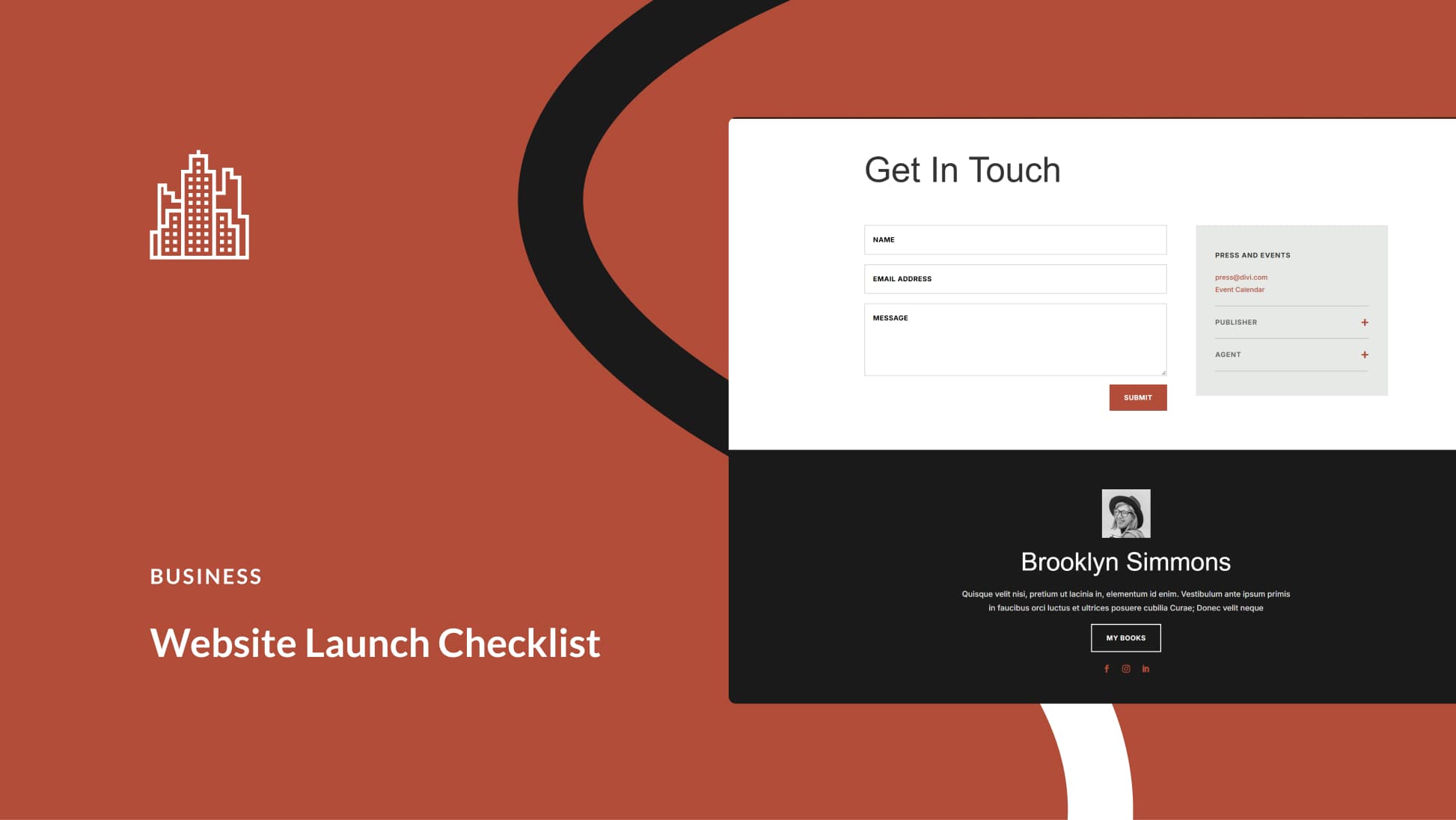At some point or another, we all hear that little voice in our heads telling us we’re not good enough. Whether it targets your career, abilities, appearance, or relationships, insecurity is unpleasant. If it’s severe, it can even prevent you from taking new opportunities when they present themselves. No matter the cause and effect, insecurity can be debilitating.
In this article, we’ll discus what insecurity looks like and how we come to experience it. Then we’ll provide three tips for overcoming it.
Let’s dive in!
What Insecurity Is and Why We Experience It
At its core, insecurity is a feeling of anxiety or uncertainty about yourself. For example, you could have the sense of being underdressed for an important work event, or the fear of not being capable enough to handle a particular assignment.
Insecurity is often accompanied by a critical inner voice, which manifests your anxiety or uncertainty as self-deprecating words. Based on the above examples, you may berate yourself for not checking the event’s dress code, or tell yourself you’re not smart enough to take on a difficult task.
It may seem that the effects of insecurity are exclusively internal, but there are external impacts as well. Insecurity can hold you back from seeking and taking on new opportunities, stunting your career growth.
The reasons we experience insecurity vary. One is based on our tendency to make comparisons with others, especially those we follow on social media. We take in the limited information available online and make assumptions about how wonderful others’ lives are. When our own lives don’t seem to measure up, we put ourselves down.
Another reason we develop insecurities is due to our tendency toward perfectionism. For some, a simple mistake may feel monumental and can impact how they view their abilities. As such, if they’re not able to accomplish a task in a way they deem perfect, they may feel entirely incapable of the skills the task requires.
Sensitivities to criticism could also lead to insecurity and hold you back from trying new things for fear of being criticized. In fact, criticism is a helpful tool for self-improvement, although if you’ve had bad experiences, this could also help to breed a problem.
How to Overcome Insecurity (3 Key Tips)
Knowing where your insecurity comes from can set you on the path to overcoming it. The tips below will help you tackle the common causes of insecurity we’ve mentioned above. Let’s take a look!
1. Stop Comparing Yourself to Others in Unhealthy Ways
Comparison is a double-edged sword. While it’s helpful for measuring personal progress and areas for improvement, it can also be useful for determining specific elements such as salary negotiations at a new job, or the kind of wardrobe that’s suitable and professional for your new office environment.
Unfortunately, it’s easy to let comparing ourselves to others get out of hand. When you tie your sense of self-worth to how you measure up to others, you’ll quickly find yourself in a downward spiral toward insecurity. In other words, you’ll always be able to argue that someone is smarter or better looking than you are.
Many times our unhealthy comparisons arise when we make judgments about others with limited information. You might assume a coworker has a perfect life because they’re successful at work, but (of course) you know nothing about their failures in other areas.
This is particularly true when it comes to comparing ourselves to others on social media, where we make assumptions based on a few photos or snippets of text. Meticulously curated Instagram profiles can hide multitudes of problems and make you believe others have risen to the top while you’re still struggling.
If you find yourself often having negative thoughts while looking at certain social media profiles, consider unfollowing or hiding their content. As you can probably agree with, there’s nothing productive about comparing your worst moments with other people’s best moments.
In addition, if you compare yourself to others in person, try to consider the bigger picture. You may feel insecure when you find it difficult to complete tasks other coworkers perform with ease. However, it’s important to remember you probably have skills your coworker lacks, not to mention how much effort they out in, regardless of how it seemed on the surface.
2. Give Yourself Permission to Make Mistakes
Perfectionism is on the rise, and with it a whole host of negative side effects, including insecurity. After all, being perfect is an unattainable goal, and under perfectionism’s thumb, simple mistakes are perceived as serious failures.
Breaking the cycle of perfectionism and insecurity isn’t easy. It requires reframing how you think about mistakes, and seeing them as learning opportunities instead of failures.
Start by recognizing signs of perfectionism in yourself. Some common symptoms are avoiding tasks you don’t think you can complete perfectly, or taking excessive amounts of time to check and re-check your work.
Next, create a plan for how you will deal with future mistakes. When you would normally berate or feel badly about yourself, try replacing your self-critical thoughts with more positive ones. Remind yourself that everyone makes mistakes, and making one doesn’t mean you’re a failure. Instead, treat them as learning experiences.
Also try setting more realistic standards for yourself. Assess the requirements you’ve set and ask if they’re actually attainable. If not, lower them, but also remind yourself that not achieving your standards is okay as long as you learn and improve going forward.
However, make sure you don’t accidentally swing too far in the opposite direction and start making excuses for poorly executed work. Giving yourself permission to fail is only helpful if you still strive for the best work you’re capable of completing. Otherwise you’re just letting yourself deliver sub-standard work.
3. Learn How to Process Good Criticism and Ignore Bad Criticism
No one enjoys being critiqued, but some people have a particularly hard time digesting criticism. It’s easy to take corrections to heart and interpret them as judgments instead of helpful information on how to improve your work.
This can be even more difficult if you’ve had a lot of experience with bad criticism. Some people deliver critiques that aren’t specific enough, and don’t offer information on how to improve or fix the problems they’re presenting. This can lead you to feel like you’re being put down instead of advised.
Learn to recognize criticism that isn’t productive and choose to ignore it. Consider the criticism you’ve received, and if you can’t discern any actionable improvements you can make, ask the person giving you the criticism for clarification. If their criticism is still more about putting you down than helping you make improvements, you can safely ignore their critiques.
Of course, criticism is also constructive and essential for developing your career. However, this doesn’t mean it always feels good to receive constructive criticism. Learning to see it as helpful instead of judgmental can be a difficult process. You can start by reminding yourself that criticism isn’t meant to be personal, it’s a tool for professional development.
Finally, when assessing criticism, consider writing down any notes on how to improve. You can then reference them later when completing tasks, and ascertain if this seems to boost the quality of your work. Observing positive results will likely make it easier to see constructive criticism as useful, and benefit you all around.
Conclusion
Insecurity is a feeling most people experience at least occasionally. Learning how to overcome moments when you feel insecure can help you be more productive and seize valuable opportunities.
This post has looked at many aspects of insecurity. When you’re faced with it, take onboard the following advice:
- Stop comparing yourself to others in unhealthy ways.
- Give yourself permission to make mistakes.
- Learn how to process good criticism and ignore bad criticism.
Do you have any questions about overcoming insecurity? Leave them in the comments section below!
Article image thumbnail: MicroOne / shutterstock.com









This article about Insecurity is too good, I found many beneficial thing for it. Thanks dear to make this unique content of piece.
Thanks for the kind words!
Getting passed this is an important skill to learn.
I feel like these are practical ways to overcome everyday insecurity and if you do so everyday it will form into a habit.
This is one of the biggest hurdles in my own personal and professional development but what a massive impact it’s had.
Thanks for posting and keep up the good work!
No problem, Arash – we’re glad you’ve found the post useful. Keep plugging away to make overcoming insecurity a habit!
Thanks for these insights! I’ve been in the design field for many years and still encounter clients that try to make us feel insecure about our design product in order to reduce our fees or get the changes they want. This blog post is an excellent reminder that it could be me, BUT it could also be (most likely) them, instead! I like the idea of holistic topics for a blog, too. Thank you for daring to deviate from Divi and WordPress!
…and thank you for taking the time to read and comment, Julia!
Hi jhon, nobody write about this topic, Thanks for supporting and Generating some confident, I appreciate your thoughts! Thanks a lot
Thank you for your kind words, Sangeeta. 🙂
following these tips will never be strong. self-digging is a lot of losers. Just beat the punching bag every day and the faces of those who humiliate you …
Nowadays, everyone is already a philosopher.
Why can’t a person on IT industry be interested in these kind of subject.
Well, we can talk, maybe it gives light to us.
Recent articles show that 🙂 We’re ‘hanging out’ anymore.
Knowing that people who do the same work need similar support could be fine for us.
I’ve noticed ET has been posting inspiring, encouraging and helpful ideas recently. In our recent world, there’s a lot of discouragement, pessimism and negativity. Anywhere we can be appropriately helpful, I’m all for it.
Thanks for the insight, Robert. It’s nice to see the community enjoying these types of posts.
Good one, John!!!
Thanks!
Is this a wordpress-theme or a Puberty-Life-Coach?
You are molesting your clients with this bullshit
Sorry, Ottilie, I have to disagree. There are many young people (and some older) just beginning their careers (with Divi) and if they felt more secure about their capabilities would be better and more confident designers and developers and better able to deal, with idiots like you.
I’m sure John (Hughs) couldn’t have hoped for a better example of bad criticism than your response.
Maybe you should start at the top of this post and read it again and while you’re at it look online for an English-As-Second-Language (EASL) course, I think it would help you. After all, “molesting your clients” really? With a last name like yours, you should be more careful where and to whom you direct your criticisms.
Have a nice day.
what about my familyname?
Why are you bullying me because of my familyname which is a very old german name?
Bullying? I wasn’t bullying you. I simply made an observation of the terminology you used to describe whom you think this post should have been aimed at and your last name.
Puberty refers to kids from 10 to 16 years old and “molesting” is an inappropriate way of referring to them.
I think it was you who was doing the bullying.
Since you are “older” perhaps you’re feeling a little insecure about your own future and your own capabilities. With a younger generation of designers coming up through the ranks with sharper minds and better ideas, trying to make them feel inferior to you is not going to cut it?
All this “bullshit” is going to make them recognize self-righteous people like you.
Thank You, Les and Nilesh for such calm and good answers to Ottilie. It is so easy to vomit a “bile” on others blog posts and comments instead of giving constructive criticism.
And yes Nilesh, we are the ET community, so if anybody feels uncomfortable here, they can always leave, right? Thanks, John Hughes for your posts. I personally love them.
I liked this article.
Why? That’s what community does. It’s not just a WordPress theme, it’s a community who helps each other, teaches each other, guides each other.
Oh well your comment is your view, I just stated mine.
I’d encourage ET team to keep posting such blogs as there are readers like me (maybe still in puberty).
Thanks and great article.
Since when this became a cheap psychology blog? Can we talk about WordPress and web? I know these are important issues but I am not here for this. Sorry just feel out of place.
You may have noticed that there are dozens and dozens and dozens – if not hundreds and hundreds – of posts on this blog about WordPress and the web…I for one appreciate the attention the ET team puts into putting out well-rounded content because it shows they know their audience beyond just the standard “this is a blog just about Divi/Wordpress”.
We’re human first.
Nice post
Thanks. 🙂